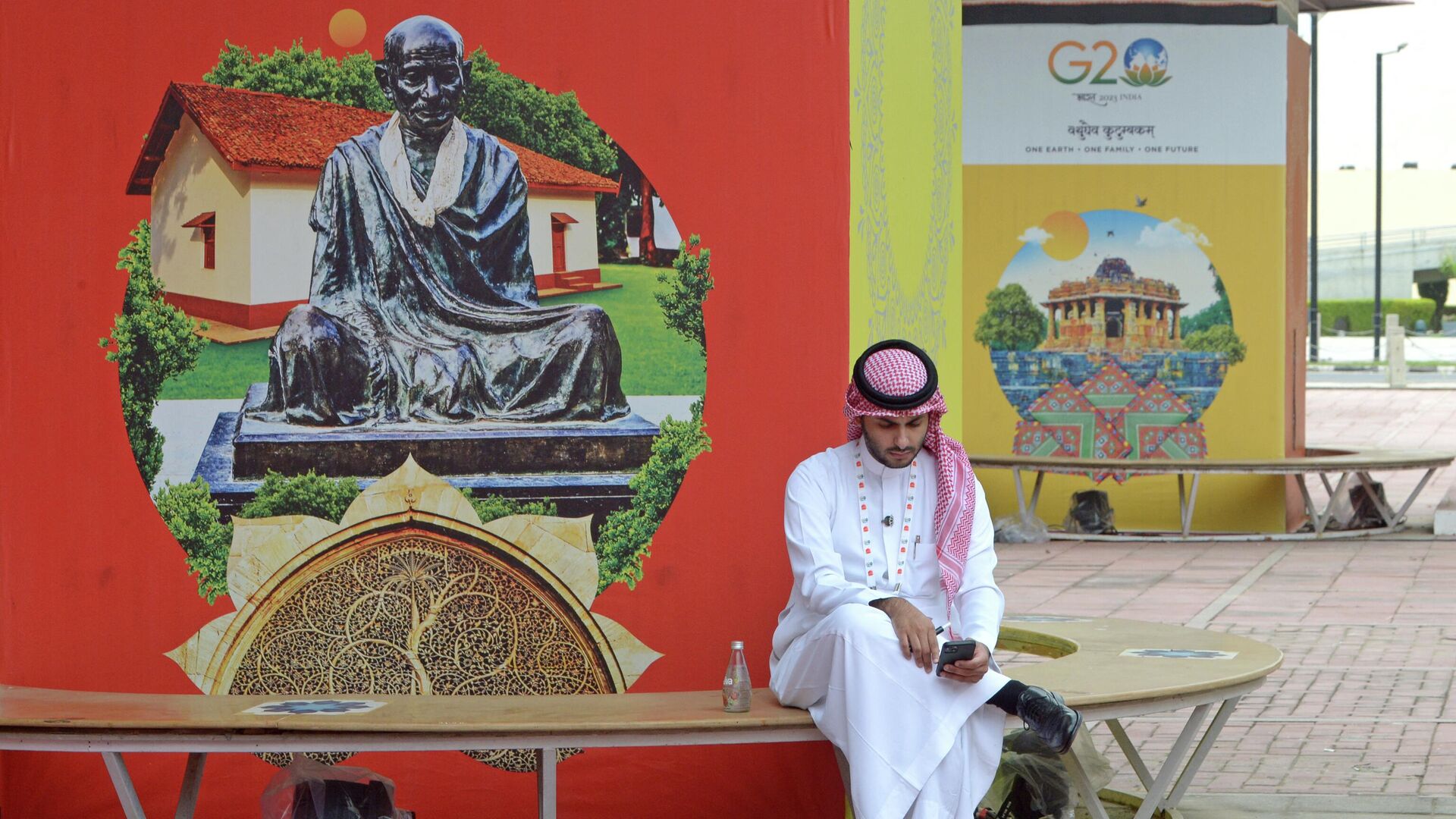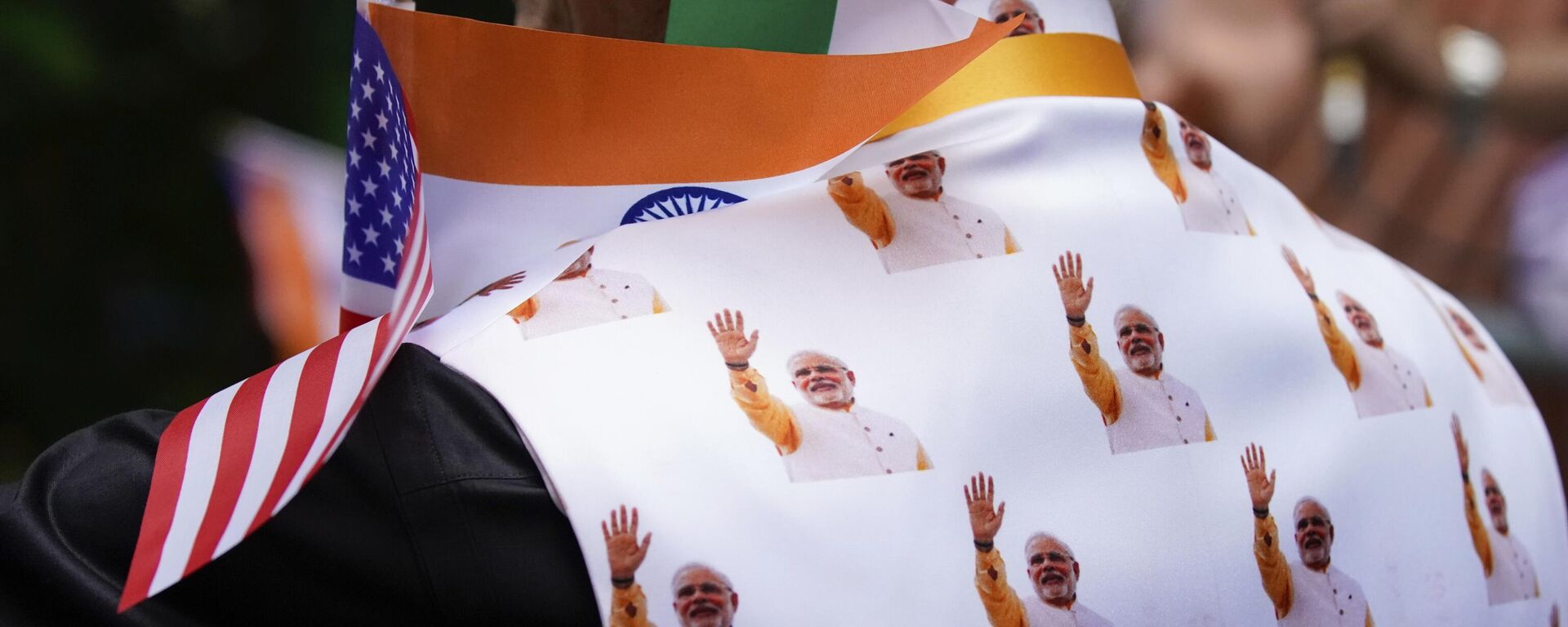https://sputniknews.in/20230722/g20-nations-call-for-non-discriminatory-energy-markets-amid-g7-curbs-3139291.html
G20 Nations Call for ‘Non-Discriminatory’ Energy Markets Amid G7 Curbs
G20 Nations Call for ‘Non-Discriminatory’ Energy Markets Amid G7 Curbs
Sputnik India
The G-20 nations have called for having “open, competitive, non-discriminatory, and free international energy markets” to meet the growing energy demand.
2023-07-22T19:37+0530
2023-07-22T19:37+0530
2023-07-22T19:37+0530
india g-20 presidency
g7
g-20
india
russia
russian oil price cap
western sanctions
china
germany
narendra modi
https://cdn1.img.sputniknews.in/img/07e7/07/16/3140335_0:0:3072:1728_1920x0_80_0_0_3bad8180a21ac01d94a0acefc8c96fe1.jpg
The G20 nations have called for having “open, competitive, non-discriminatory, and free international energy markets” to meet the growing energy demand, according to the outcome document and ‘Chair’s Summary’ published after the Energy Transition Ministers’ meeting in Goa on Saturday.“We stress the importance of ensuring that the growing global energy demand is matched by sustainable and affordable energy supplies,” the G20 ministers said.The inter-governmental grouping said that it backed the increased dialogue between consumers and producers and “global cooperation” in the energy sector.The meeting, like previous key ministerial meetings under India’s G20 presidency this year, concluded without a joint communique due to reservations expressed by Russia and China over the inclusion of the Bali geopolitical paragraphs.Moscow has previously stated that India is being “pressured” by the West to include these paragraphs in the outcome documents which are keeping them from being unanimously endorsed as joint communique.G7's Restrictions Against RussiaThe meeting took place against the backdrop of G7 restrictions against Russian energy exports, including a price cap of $60 per barrel for any country wanting to purchase Russian crude using western insurance and maritime services.The G7 bloc, the biggest importer of Russian energy till last year, banned the import of Russian crude last December and expanded the ban to cover refined fuel too.However, India and China have emerged as key beneficiaries of the G7’s decision to cut down on Russian energy imports, with both the Asian nations now ranking among the biggest recipients of Russian energy.India received more than 32 million tonnes of Russian crude in 2022-23, propelling the bilateral trade to reach an all-time high of $45 billion last year, according to official data.This year, Russia has emerged as India’s top oil supplier. Currently, Russia ranks as India's third-biggest trading partner, which has happened for the first time ever.Indian Prime Minister Narendra Modi told the G7 leaders at the summit in Germany last year that buying crude from Russia is in the interest of India’s “energy security”.
https://sputniknews.in/20230718/us-obsession-with-ukraine-is-rendering-g20-redundant-ex-envoy-warns-3062671.html
india
russia
china
germany
Sputnik India
feedback.hindi@sputniknews.com
+74956456601
MIA „Rossiya Segodnya“
2023
Dhairya Maheshwari
https://cdn1.img.sputniknews.in/img/07e6/0c/13/138962_0:0:641:640_100x100_80_0_0_2cb44360dbcdf6d84bf4b299cd045917.jpg
Dhairya Maheshwari
https://cdn1.img.sputniknews.in/img/07e6/0c/13/138962_0:0:641:640_100x100_80_0_0_2cb44360dbcdf6d84bf4b299cd045917.jpg
News
en_IN
Sputnik India
feedback.hindi@sputniknews.com
+74956456601
MIA „Rossiya Segodnya“
Sputnik India
feedback.hindi@sputniknews.com
+74956456601
MIA „Rossiya Segodnya“
Dhairya Maheshwari
https://cdn1.img.sputniknews.in/img/07e6/0c/13/138962_0:0:641:640_100x100_80_0_0_2cb44360dbcdf6d84bf4b299cd045917.jpg
india russia trade, india russia oil, india russia news, india russia oil trade, russian oil exports
india russia trade, india russia oil, india russia news, india russia oil trade, russian oil exports
G20 Nations Call for ‘Non-Discriminatory’ Energy Markets Amid G7 Curbs
The G7 countries' restrictions against Russian energy exports caused a global volatility in crude prices, with rising fuel prices adversely affecting low and middle-income nations.
The
G20 nations have called for having “open, competitive, non-discriminatory, and free international energy markets” to meet the growing energy demand, according to the outcome document and ‘Chair’s Summary’ published after the
Energy Transition Ministers’ meeting in Goa on Saturday.
The countries underlined the need for maintaining “undisrupted flows of energy from various sources, suppliers and routes” to achieve the objectives of energy security and market stability.
“We stress the importance of ensuring that the growing global energy demand is matched by sustainable and affordable energy supplies,” the G20 ministers said.
The inter-governmental grouping said that it backed the increased dialogue between consumers and producers and “global cooperation” in the energy sector.
The G20 ministers also said that they aim to bolster technological cooperation globally with a view to ensure energy security and stabilize energy markets, according to the document.
The meeting, like previous key ministerial meetings under India’s G20 presidency this year, concluded without a joint communique due to reservations expressed by Russia and China over the inclusion of the Bali geopolitical paragraphs.
Moscow has previously stated that India is being
“pressured” by the West to include these paragraphs in the outcome documents which are keeping them from being unanimously endorsed as joint communique.
G7's Restrictions Against Russia
The meeting took place against the backdrop of G7 restrictions against Russian energy exports, including a price cap of $60 per barrel for any country wanting to purchase Russian crude using western insurance and maritime services.
The G7 bloc, the
biggest importer of Russian energy till last year, banned the import of Russian crude last December and expanded the ban to cover refined fuel too.
However, India and China have emerged as key beneficiaries of the G7’s decision to cut down on Russian energy imports, with both the Asian nations now ranking among the biggest recipients of Russian energy.
India received more than 32 million tonnes of Russian crude in 2022-23, propelling the bilateral trade to reach an all-time high of $45 billion last year, according to official data.
This year, Russia has emerged as India’s top oil supplier. Currently, Russia ranks as
India's third-biggest trading partner, which has happened for the first time ever.
Indian Prime Minister Narendra Modi told the G7 leaders at the summit in Germany last year that buying crude from Russia is in the interest of India’s “energy security”.



